Ten distinguished recipients at Convocation
ARTS & SCIENCE
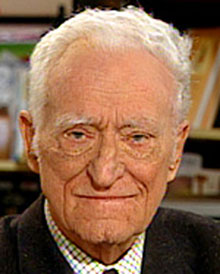
Claude Ryan (posthumous)
Claude Ryan was hailed as a statesman of rare wisdom and integrity when he died on Feb. 9, 2004. He was the publisher of the influential newspaper Le Devoir, and leader of the Quebec Liberal Party.
From the mid-1940s to the early 1960s, a time of significant change in Quebec, he was national secretary of the Action catholique canadienne, and during the same period, president of l’Institut canadien d’éducation des adultes.
In l962, he joined the daily newspaper Le Devoir as editorial writer, and served as editor-publisher until l978, when he resigned to pursue a political career.
He served as leader of the Quebec Liberal Party from 1978 to 1982, leading the successful “No” forces in the l980 independence referendum. He subsequently served in various cabinet posts, notably as Minister of Education, and retired from active politics in l994.
The long list of Ryan’s honours suggests the broad range of his interests, from a National Newspaper Award to the Human Relations Award of the Canadian Council of Christians and Jews and the Prix de Carrière of the Conseil du Patronat du Québec. Among other things, he was named La Presse’s Person of the Year, a Lifetime Honorary Fellow of the Institute for Research on Public Policy, and a Companion of the Order of Canada.
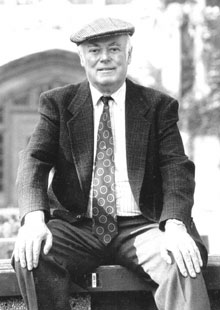
Alistair MacLeod
Alistair MacLeod is one of Canada’s finest authors. Although he was born in North Battleford, Sask., he was raised among an extended family in Cape Breton, N.S. He still spends his summers writing in a cabin in Inverness County, and it is the people of Cape Breton whom he portrays so memorably in his fiction. He has published two internationally acclaimed collections of short stories: The Lost Salt Gift of Blood (1976) and As Birds Bring Forth the Sun (1986). In 2000, these two books, accompanied by two new stories, were published in a single-volume edition entitled Island: The Collected Stories of Alistair MacLeod.
In 1999, MacLeod’s first novel, No Great Mischief, was published to great critical praise, and was on national bestseller lists for more than a year.
The novel won, among many other prizes, the International IMPAC Dublin Literary Award, the most lucrative award in English-language writing.
MacLeod recently retired from teaching creative writing at the University of Windsor.

John O’Brien
John O’Brien is Rector Emeritus of Concordia, and Speaker of University Senate.
Over his long association with the university, he has been a professor of economics, department chair, Dean of Arts (Sir George Williams University, 1963-68), Vice-Principal Academic (SGW, 1968-69), Principal and Vice-Chancellor (SGW, 1969-74), and Rector and Vice-Chancellor of Concordia University (1974-84), the first to hold that position. Dr. O’Brien’s probity and dry wit are so prized that he has been unanimously elected and re-elected Speaker of Senate since that post was created in 1996.
He was educated at McGil University and the Institut d’Études Politiques, and has honorary degrees from McGill and from Bishop’s University.
ENGINEERING & COMPUTER SCIENCE

Normand Hébert
Normand D. Hébert has built Quebec’s largest automobile sales company, the Groupe Park Avenue. It has more than 400 employees and annual sales of more than $250 million.
His passion for cars led him to found the annual Salon Internationale de l’auto de Montréal in 1969. It is now enjoyed by about 200,000 visitors.
Mr. Hébert has many family connections to Sir George Williams University, Loyola College and Concordia, and has been a generous fundraiser for the university.
He established a master’s fellowship given annually in his name to a student in the Department of Mechanical Engineering for financial need and academic merit. He is a member of the Rector’s and Millennium Circles, which recognize significant donors.
FACULTY OF FINE ARTS
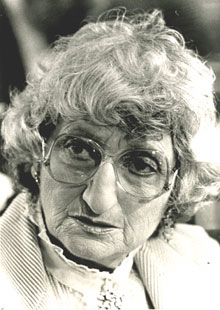
Maryvonne Kendergi
Mme Kendergi is best known as a Radio-Canada broadcaster and advocate for classical music in Quebec. Born in Armenia in 1915, she escaped persecution with her family by fleeing to Syria and subsequently settling in France. She attended the École Normale de Musique de Paris, where she was influenced by its founder, Alfred Cortot, and by the great piano teacher Nadia Boulanger.
After serving for a time as director of cultural activities at the University of Paris, she moved in 1952 to Saskatchewan to be with her parents. She came to the Université de Montréal, where she taught from 1968 to 1981 and created the first course in Canadian and Quebec music history. She also started a public series of encounters with celebrities under the name Musialogues.
She continued to communicate that subject with skill and warmth in her years at Radio-Canada, where she did more than 200 interviews with musicians. She also founded the Association pour l’Advancement de la recherche en musique, and became an advocate of women’s rights.
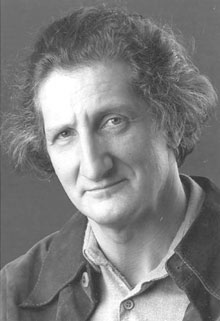
Guido Molinari (posthumous)
A painter from the age of 13, Guido Molinari became one of Canada’s foremost artists, and helped build Concordia’s Faculty of Fine Arts as an art teacher from 1977 to 1997.
He never finished his formal education. Molinari studied with formalist painters Marian Scott and Gordon Webber, but he found kindred spirits in the American painters Jackson Pollack and Piet Mondrian, who freed painting from reference to perspective.
With his friend Claude Tousignant, Molinari changed the landscape of Quebec art in the 1960s. He experimented with painting blindfolded and in the dark, and developed a style that featured geometric shapes and bright colours.
His work was exhibited internationally, and he received many awards and distinctions, including the David Bright Prize at the 37th Venice Bienniale, the Prix Paul-Emile Borduas for his contribution to art in Quebec, and appointment to the Order of Canada in 1971.
A gifted teacher, he taught at Concordia from 1970 to 1997, and helped a generation of students gain confidence through self-expression. He died Feb. 22, 2003.
JOHN MOLSON SCHOOL OF BUSINESS
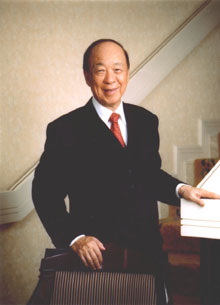
Lui Che Woo
Lui Che Woo is an entrepreneur and philanthropist based in Hong Kong.
He was born in Guangdong province of China, and moved to Hong Kong at four, with his family, ahead of the Japanese invasion.
He had to leave school at 12 and sell food from a small roadside stand to help his family make a living. With hard work, ingenuity and perseverance, he moved into business, first as a food wholesaler, then selling spare car parts by day and attending school by night.
Later, he began importing used U.S. army machinery from Okinawa.
In 1955, he established the founder of the K. Wah company, now the K. Wah Group of companies, which employs about 10,000 people.
Mr. Lui played a major role in the peaceful turnover of Hong Kong to China, and he is a major supporter of medical and educational facilities in Hong Kong and the U.S. He was made a member of the Order of British Empire in 1988, and has even had a star named after him, the Lui Che-Woo Star, asteroid number 5538.
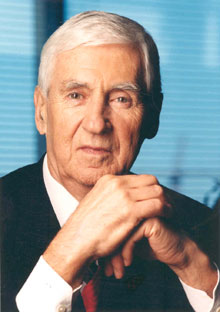
André Chagnon
André Chagnon founded the cable company Le Groupe Videotron in 1964, and grew it into one of Canada’s foremost telecommunications companies.
He sold it four years ago to focus exclusively on the Lucie and André Chagnon Foundation, which fights chronic poverty and promotes preventive health practices.
The son of an electrician, he began his working life laying underground cables. Eventually he started his own contracting company, Chagnon Electric. After seven years, he sold it to his employees; it continues to flourish.
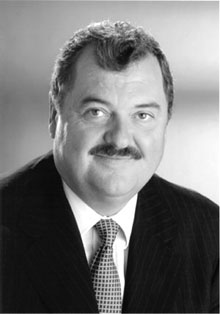
Henri-Paul Rousseau
As president and chief executive officer of the Caisse de depôt et placement, Mr. Rousseau is in charge of a $125-billion pension fund, one of the top 10 such funds in the world and an engine of the Quebec economy.
He taught economics at the Université du Quebec à Montréal until 1986, when he joined the National Bank and came under the mentorship of CEO Michel Bélanger.
In 1992, he left the National to head the general insurance division of the Laurentian Group.
He succeeded Dominic D’Alessandro as CEO, and in eight years increased the bank’s assets from $10 billion to $18 billion during a period of intense competition from the Toronto-based megabanks.